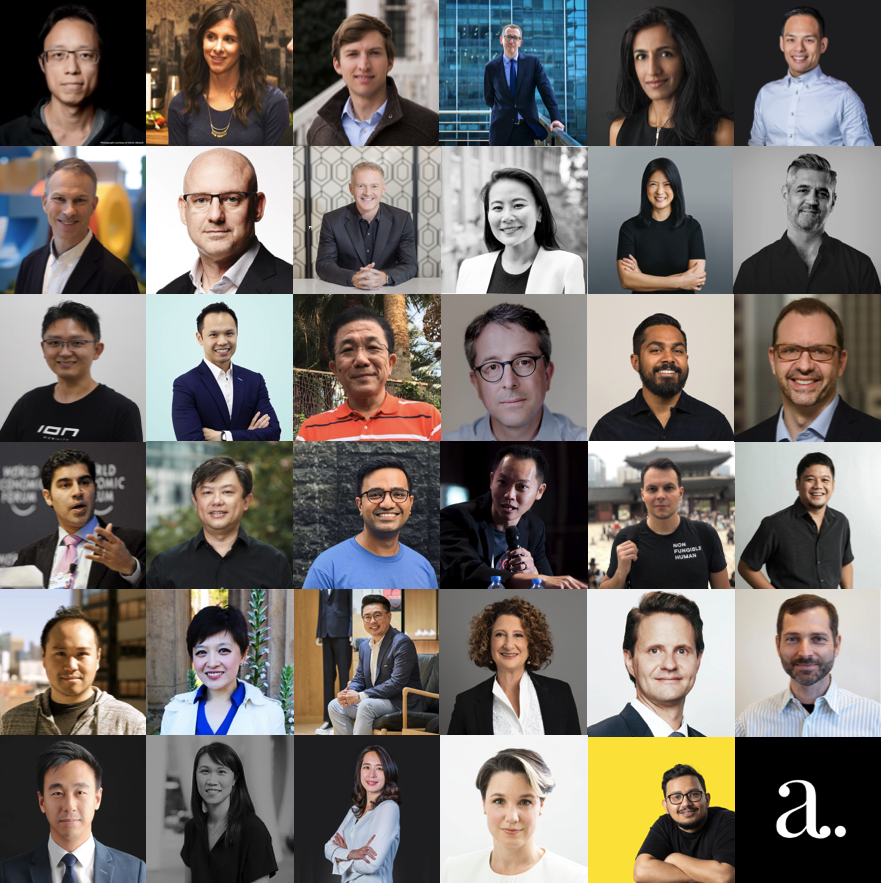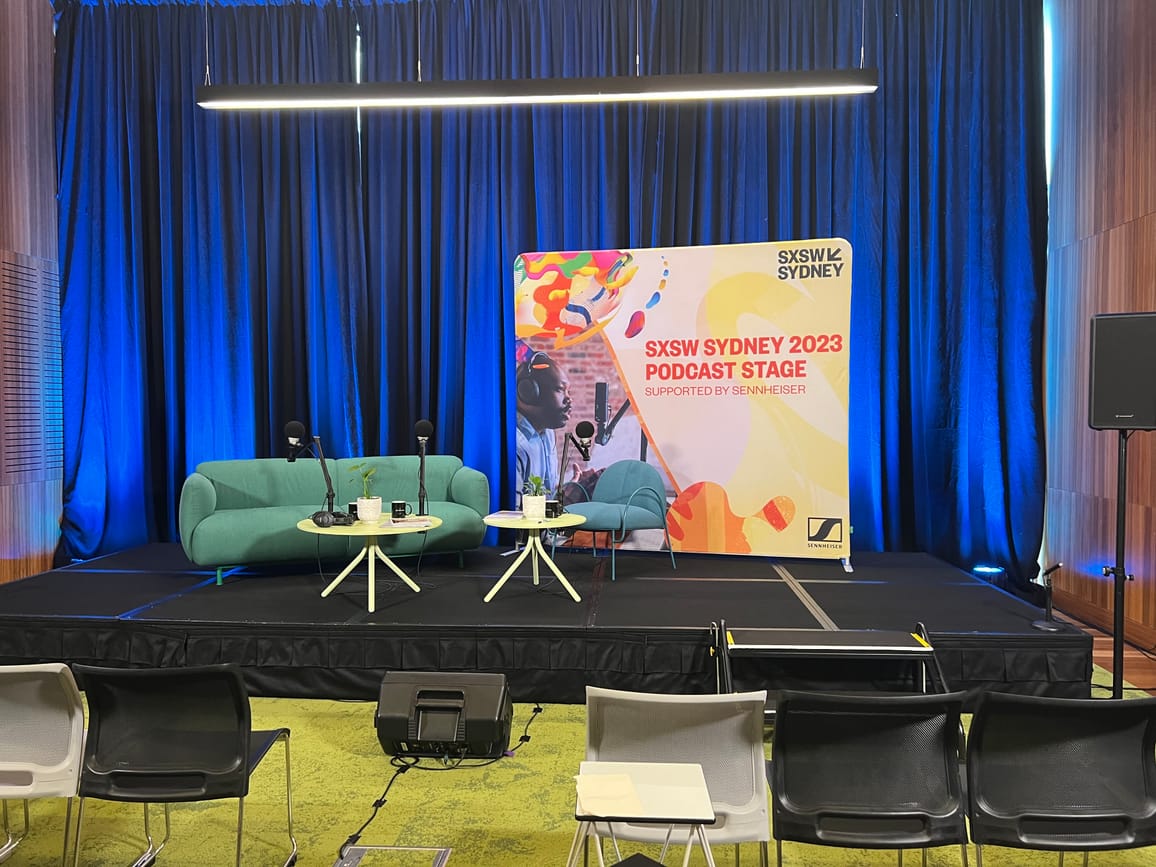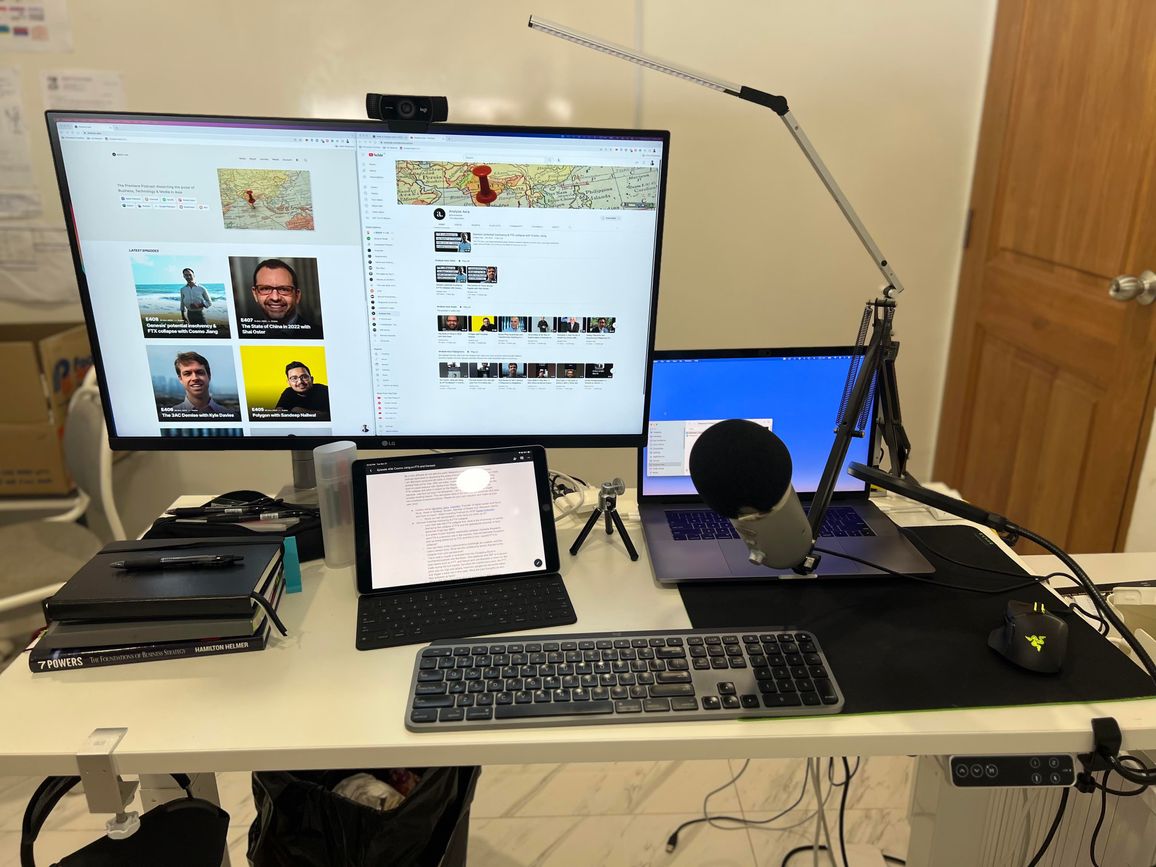How do we select and curate our guests on the show?

For a long while, we have had enquiries from corporate communications leads from different companies to public relations (PR) agencies on how we select and curate our guests on the show. Here are the rules of engagement and our guidelines and red lines moving forward.
From the start of the show, we insist on high standards to bring interesting guests to the show. Over the years, we are keenly aware that there are aspiring individuals who would want to be on the show but wants to know our criteria in selection. Hence we will provide our guidelines moving forward.
It is important to understand that Analyse Asia is a media outlet and not a news outlet. We are not interested in breaking news and even if the guests want to announce something here, we won't object to them. What we are looking for, are the perspectives of business, media and technology in the Asia Pacific and we don't agree and disagree during the interview. We let the guest speak no matter how controversial they are but allow the audience to be critical and make up their minds after listening to or watching the podcast.
First, there is only one decision-maker in the entire process, and that is our host and the owner of Analyse Asia, Bernard Leong. He works with the editorial team to discuss, select and curate who he wants to come on the show and makes the final call to who finally comes on the show. If you attempt to bypass him, please be warned that your guest will be rejected without fail. Another approach is to go through people he knows, trusts and values highly, or in simple words, referral.
Types of Guests on the Analyse Asia show
We have broken up our choice of guests into the following segments.
Senior Executives of regional and multi-national corporations in Asia: In the past year, we have raised the bar to at least vice presidents, c-suite executives, CEOs and regional heads from known business corporations. We are interested to engage the corporation communications head of these corporations directly with us instead of working through their designated PR firms. In our experience with Google, Facebook, Servicenow and South China Morning Post, which we believe to be the best experience for our interviews to go smoothly without fail, it is best practice to just directly engage us from the corporate communications lead from the company instead of a PR firm. Typically, you need to come to us with a pitch. It must not be only about the business activity of the company in the region, but also a topic of interest which she or he can provide thought leadership, for example, environmental, social & governance (ESG), future of work, digital transformation or something we may find interesting. One interesting nugget is that we tend to have technology executives on the show as our founder has been working in the technology sector for a long time.
Start-up Founders: Since the beginning, we have decided that the minimum bar for startup founders is that their startups must be venture-backed to at least series B financing with a run rate above USD$30 million. As per our recent state of Analyse Asia in 2022, we have raised the bar for start-up founders to have at least Series C financing with a revenue run rate above USD$50 million. Of course, there are start-up founders who may make the exception 0f being a seed stage, series A or B. Typically these start-up founders have an interesting background, for example, she or he is the former head of a business for a multi-national company for 14 years or an experienced senior executive from a well-known professional services firm. All the exceptions we have made for start-up founders in Series A all ended up in Series B later which in our view, are coincidental and we have been lucky for the few calls we made. Start-up media has used our podcast as a barometer to gauge who is going towards their next stage of funding. If you want coverage as an early-stage start-up, we advise that you tap into regional outlets such as Tech In Asia, E27, DailySocial in Indonesia, Technode and many others.
Specifically for crypto and Web3 founders, we are open to builders of different crypto protocols and decentralized applications. We are keen to interview people who are sceptical of web3 and crypto as well.
Investors: We cover all segments of investors from the early stage of investing to public markets. For the investor segment, we feel comfortable with prominent angel investors, venture capitalists and private equity investors. We are interested in covering family offices as well as the limited partners (LPs) to funds as well. Typically, the conversation will cover their investment thesis, how they select investments, examples of interesting start-ups or late-stage pre-IPO companies they backed and how they look at the different markets. This segment is open to crypto and web3 investors specifically to crypto hedge funds.
Journalists covering stories in the Asia Pacific: We have the honour of hosting journalists from well-known media outlets such as Wall Street Journal, Reuters, Financial Times, Bloomberg, Reuters, South China Morning Post, The Information, The Ken, TechCrunch, Technode, Tech in Asia, E27, The Straits Times, and Mashable.
Industry and Geopolitics Observers: We cover analysts or interesting reports which focus on the global and key trends in the Asia Pacific. If you have a specific point of view on an industry with a report covering the region (and not one individual country in Asia), we are interested to speak to you. Examples include the annual e-Conomy Southeast Asia report by Google, Temasek and Bain & Co, the State of Digital report by Hootsuite and We Are Social, Charles Reed Anderson on smart cities, future of work and Internet of Things (IoT) or Jon Y covering the semiconductors industry from Asianometry. That includes think tanks from the US or within the region who have a point of view on the supply chain and potential flashpoints, for example, the tensions between the US and China or the Taiwan issue in the region.
Authors: We cover authors with interesting books that discuss key trends or stories specific to the Asia Pacific. We have also covered authors of books written by senior executives in the Asia Pacific with local context as well.
Global Thought Leaders and Influencers: We are always happy to host global thought leaders, for example, Horace Dediu from Asymco, Benedict Evans, Ben Bajarin, and even CEOs of global companies who are passing by in the Asia Pacific. In the distant past, we have Gary Vaynerchuk. However, we will ask questions about your connection to Asia.
Regional Political Leaders & Senior government officials: We are interested to interview any regional or global political leaders if they are keen to discuss business, technology and media in the Asia Pacific. We cover them without fear or favour as interviewees and will prefer respectful conversations. We are also open to senior government officials as we have done with an official from the Australian High Commission in the past on how Australia bring their startup companies into Asia through Singapore as a hub. We are interested in public policy discussions.
We will update our criteria for guest selection and curation from time to time.



